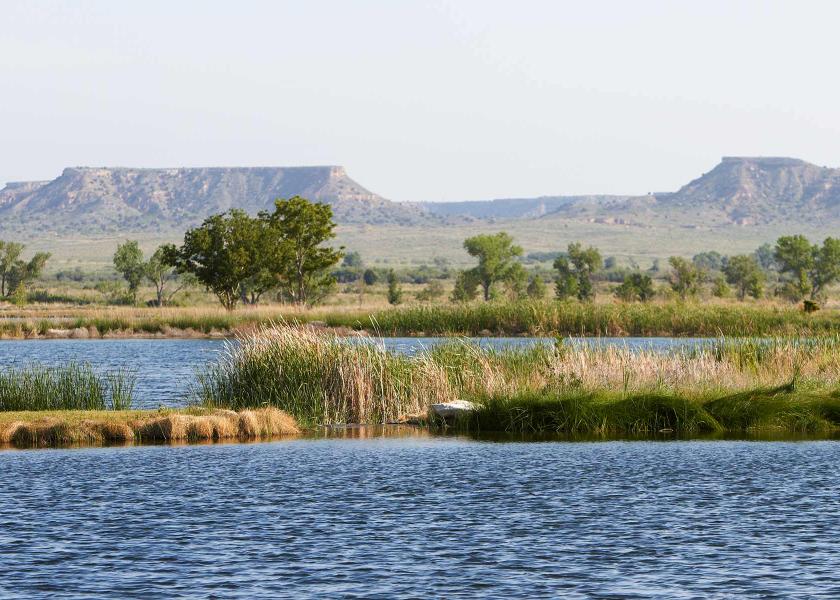McKnight: The Case For Climate Collaboration

The opinions expressed in the following commentary are those of Robert McKnight Jr., president of the Texas and Southwestern Cattle Raisers Association.
When Burger King launched their #CowsMenu public relations campaign back in July, cattle producers across the country shook our heads in frustration. The burger chain announced the campaign with a video on social media that blamed cow flatulence for climate change, promoted experimental data on the use of lemongrass to reduce methane emissions and generally stereotyped ranchers and American cattle production.
Once again, it seemed cheap marketing tactics had trumped the facts, putting cattle producers in the crosshairs. Fortunately, advocates like the Texas and Southwestern Cattle Raisers Association jumped into action to fight the misconceptions.
What happened next was unexpected. Burger King acknowledged our concerns, revised their campaign, and agreed to work with a leading agricultural researcher to ensure their future messages were more factual. I greatly appreciate the way they handled the situation and applaud their commitment to working with industry experts in the future.

Robert E. McKnight, Jr. is a life-long rancher from Fort Davis, Texas. He currently serves as president of the Texas and Southwestern Cattle Raisers Association.
Still, it would have been better for everyone had those conversations occurred before the campaign was launched. Also, not everyone acts as ethically as Burger King did in this instance. Some brands are willing to sell their products by using falsehoods and half-truths that vilify cattle producers and mislead consumers.
The harm from these types of actions goes far beyond damaging the reputation of cattle producers or swindling consumers. They actually hide real problems and hinder the process of finding viable solutions.
One of the most persistent misused statistics is from the United Nations (U.N.), who estimated that 14% of greenhouse gasses come from cattle. That number is frequently used to persuade consumers that they should avoid beef to save the planet. However, the reality in the United States is much different than what is portrayed by the U.N. Here, only 2% of greenhouse gasses are attributable to beef cattle, according to the Environmental Protection Agency.
The difference between these two numbers is thanks to the hard work of American ranchers. For decades, we have strived to be more efficient and make the best use of our resources. That is why today, we produce the same amount of beef as we did in 1977 with 33% fewer cattle.
Improvements in genetics, animal nutrition and land stewardship practices have contributed immensely to reducing our carbon footprint over the years. That trend continues today at universities across the country, where researchers work every day to identify new techniques and practices to advance our industry.
When public relations campaigns latch onto a single, small and unverified study – as was the case recently – it distracts from the valuable work being done to provide real, meaningful improvements.
Once proven viable, American cattle producers often eagerly adopt new techniques and practices on our ranches. Though marketing campaigns often stereotype cattle producers, many of us are college-educated, tech-savvy entrepreneurs who take great pride in constantly improving our operations.
Critics also like to portray cattle producers as unconcerned with the environment. However, they reality is that productive land, green grass, clear water and clean air are essential to raising cattle. Our long-term survival and profitability are directly tied to how well we care for our land and resources.
In fact, cattle can have a positive impact on the land, helping to maintain the pastures where they roam.
The hooves of cattle churn the soil, allowing easier access for water, oxygen, carbon dioxide and other nutrients required for healthy soil. Studies have shown that properly managed pastureland can increase the capacity of the soil to sequester more carbon.
Even if we were to eliminate cattle from the American landscape, it would not make a dent in our nation’s greenhouse gas emissions or help reverse climate change. It could, however, have serious unintended consequences on the health of and productivity of our open spaces.
As a consumer, I know it feels good to make purchasing decisions that have a positive impact on our community and the environment, but it is a false choice to ask Americans to choose between beef and the environment.
I hope in the future that others will take a page from Burger King’s playbook and work with, not against, cattle producers to achieve our common objectives. I know that our children and grandchildren will inherit a better future if we do.







